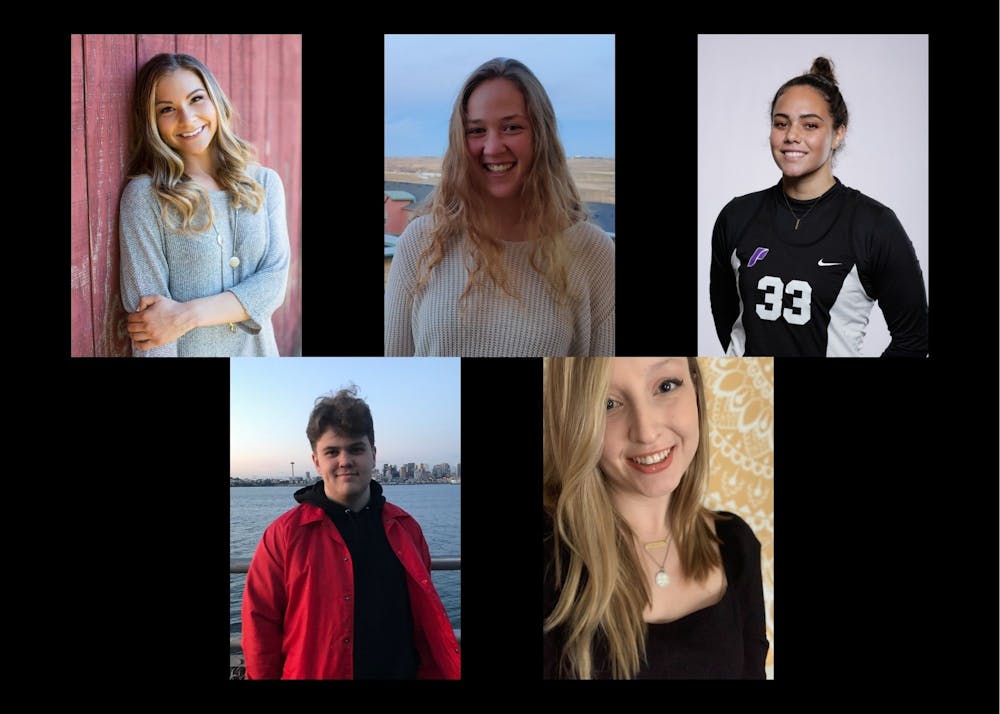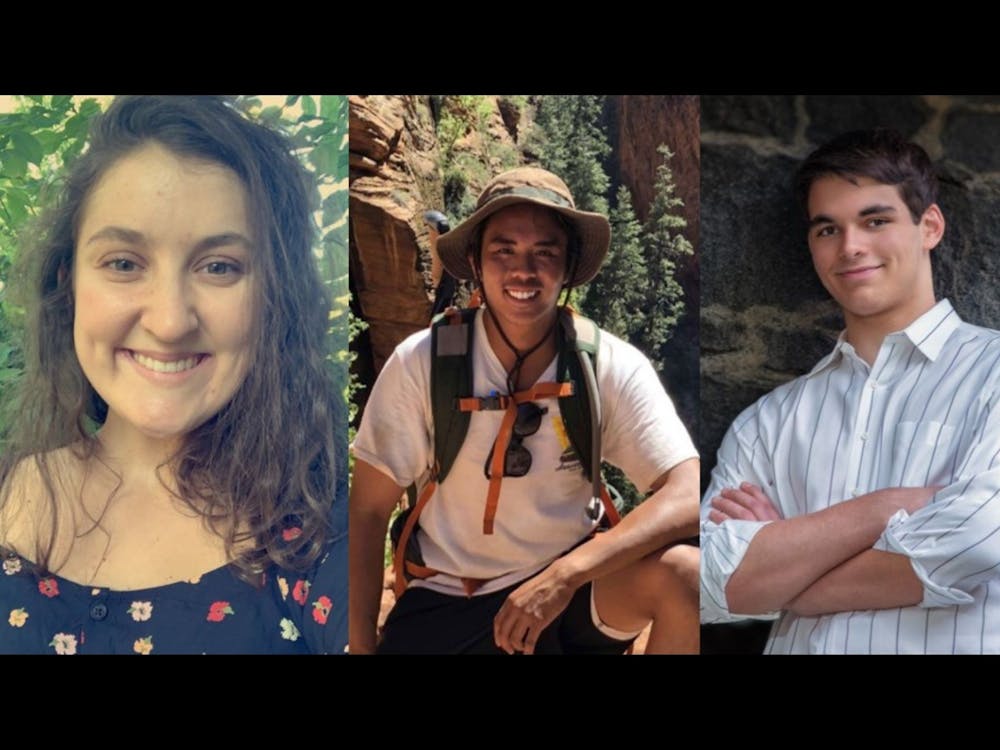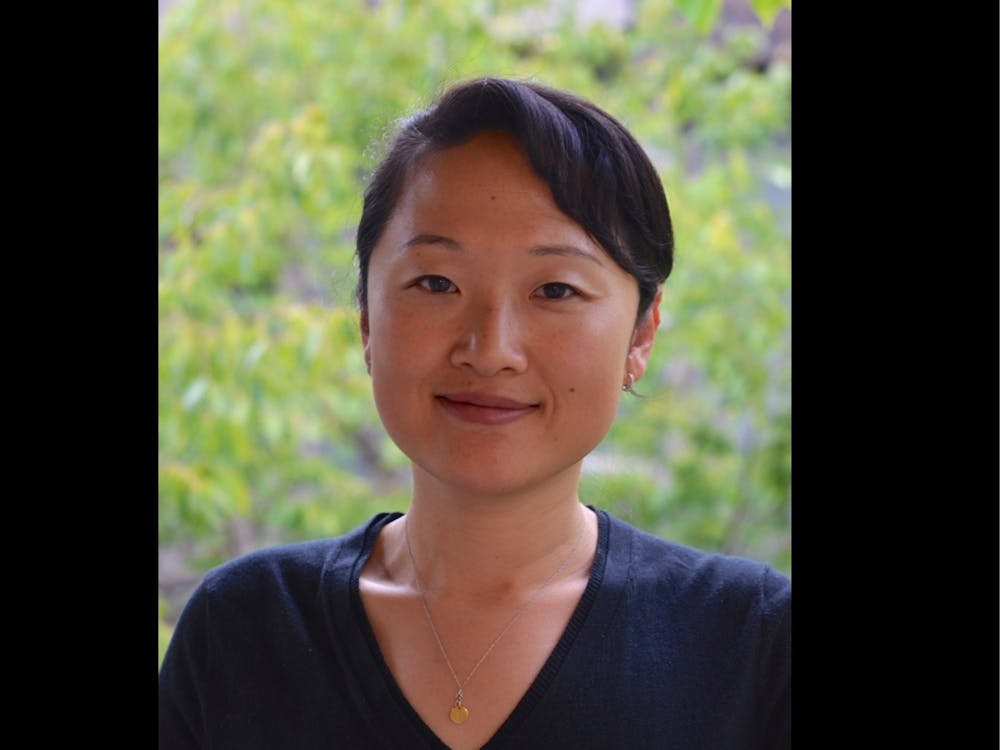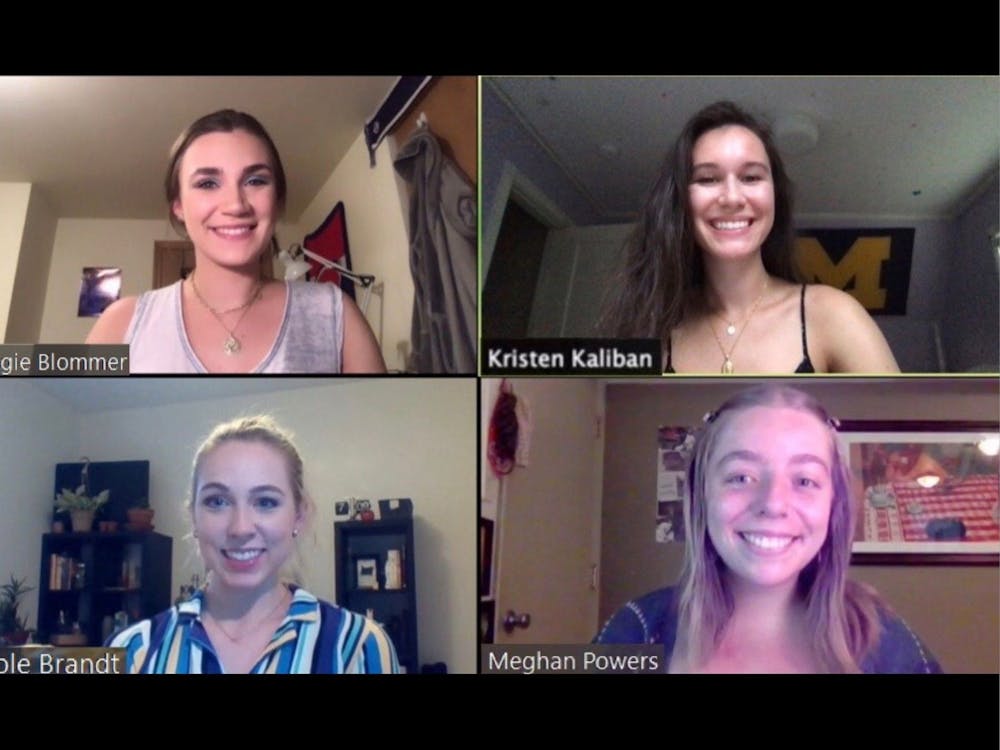Dear Father Mark Poorman, Provost Herbert Medina, and the University of Portland Board of Regents,
You've heard the cries of students, faculty, staff and alumni demanding change. It's no news to you that the University of Portland was built on the land that is not our own but belongs to our Indigenous neighbors; that we live in the most gentrified, whitest large city in the United States; and that racism is not a thing of the distant past but a present-day reality running rampant through our very campus. This you know: our BIPOC community members who have come here seeking the justice, equity, and inclusion you deceitfully espouse have been failed by you.
Our predominantly white faculty do not reflect our roughly 50% BIPOC student body. Apart from courageous student efforts and occasional pursuits of representation, the story of UP and race can mostly be characterized as a failure. From the lack of intervention during a derogatory speech at an athletics event to abundant micro-aggressions from faculty members, to an unsatisfactory diversity center, to finally hiring a BIPOC counselor only to rescind the offer, to a disturbing Beacon report last summer on the racism embedded among the executive circles of UP — it is clear that change must be made if we truly care about the safety and wellbeing of our BIPOC community.
If not, UP will remain a stronghold of white fragility for years to come. Time will tell if this current model we operate under is closer in line with your values than adapting and innovating to uniquely tackle our institutional whiteness and finally practice the virtues we students too often see plastered on admissions pamphlets and school-wide emails.
This institution engages in virtue signaling — attempting to look good on the outside but not taking any action to live up to one’s proclamations — far too often, and under no condition will it ever be sufficient. Where is the accountability? The events of the past year clearly demonstrate that now is the time to collectively show that we are not bystanders to injustice but will instead actively work to reverse it.
This letter is not meant to point fingers; it's meant to present an opportunity. With the formation of the Ethnic Studies program in the works, now is the perfect time to propose a new course that would be a part of it: Social Identity and Advocacy.
What would the course entail? First, it would be a required course for every major. It would replace one of the current upper division philosophy or theology courses at the 300 level, allowing juniors and seniors to engage with more pressing issues such as how to make sense of their own social identities in terms of gender, race, ability, class, sexuality, age, and more before venturing into the world beyond The Bluff. It would delve into what social identity is (“the ways in which individuals are distinguished in their social relations with other individuals,” as Dr. Brenda J. Allen defines it), a concept to which many students have not been exposed.
It would be taught by faculty members of many different disciplines, lenses, and identities. Similar to the “Imagining Our Future” course pioneered in the Fall 2020 semester in which over 200 students were enrolled, it would be taught by a different faculty member each week so as to cover a wide range of topics. Inviting multiple instructors to teach the course would pose an opportunity to hire more BIPOC faculty members.
With social identity and advocacy as central themes of the class, the key learning goals would be for students to (1) learn about the history of racism and European colonization, (2) understand and communicate their own social identities, (3) learn how to listen empathically and advocate for underrepresented groups, (4) build a stronger UP community by acknowledging and supporting all identities, especially underrepresented groups, and (5) bridge a gap between The Bluff and the larger Portland metro area through a practical application, community-building project. The course would follow a decolonized syllabus centering the voices of BIPOC individuals as opposed to the typical white, straight, cis, male, Eurocentric focus. In the words of a UP professor who supports the creation of such a class, “I don’t teach for the system. I teach for liberation.” This class would do just that.
The University of Portland’s mission statement clearly states that the institution “prepares people who respond to the needs of the world and its human family.” Although this is a grand gesture of holistic education in writing, students demand to see this sentiment in action. The course proposed here is a small step toward the reality to which UP must adapt. The University of Portland — and the academic environment as whole — is behind the curve when it needs to be ahead.
Sharing their testimonies of racial discrimination in academia, professors Tsedale Melaku and Angie Beeman in a Harvard Business Review article wrote that “although there is a perception that academia is a safe haven for these kinds of honest conversations, it is often the opposite.” Students are aware of the need to have conversations surrounding social identity and how we can construct a more inclusive world. Students come to UP to receive a meaningful, contemporary education that must address these urgent matters.
Upon critical examination of our current majors and core requirements, our higher education system is entirely too specific. It’s great that students can balance a spreadsheet or write a five-page paper on the American Revolution, but have they ever considered how their social identities shape their human experience? We are the future, and it is paramount that we are equipped with the tools to create a more just and caring society.
Such a class would not only fulfill the demands of the student body but would also reflect the tenets of Catholic Social Teaching. Specifically, Catholic Social Teaching highlights the notion of ‘Rights and Responsibilities’, where humans are all deserving of rights, and have a responsibility to better society. As a Catholic institution educating generations, the University of Portland should be eager to offer a class on social identity and advocacy. This course would provide a space for navigating the constantly changing needs of our human family, providing the critical thinking skills needed to construct a more diverse, respectful and inclusive world beyond the classroom.
This class must become a requirement in the University’s core curriculum — not just the College of Arts and Sciences. Students majoring and minoring in studies such as Sociology, Social Justice, History, Communication, and Philosophy already engage with topics of race and identity within the College of Arts and Sciences; however, it is the schools of Nursing, Business, Engineering, and Education that overlook these imperative topics. The Social Identity and Advocacy class is in the best interest of all students at the University of Portland.
We maintain hope that there are people in power who are willing to listen and acknowledge that there are areas in which this University must improve. The most important thing that you can do is acknowledge these problems and put in the work to create actionable change, not only at the administrative and leadership levels, but in the behavior and mindset of your white colleagues and project these values further to the student body.
Make this University a safe place in which we promote conversations about power, challenging tradition to create a better future for all, ultimately creating well-rounded, powerful scholars who will create change in the world upon graduation in any field of their choice. To do so, the Social Identity and Advocacy course within the Ethnic Studies program must be a core requirement for every student. Every human and scholar should have to consider who they are as a “whole person,” as the University’s mission states, and how our differences have affected our experiences in this world, the importance of our different identities and empower students to demand more, create change, and thrive in this difficult world with compassion.
So, what now?
Students: Tuition goes up every year. It went up four percent even after COVID-19. As the paying customers at this university, we have the power to make change. Graduating seniors, we're looking at you, too. What will be the legacy you leave behind? We'd love to hear your input for the creation of this course (faculty, alumni, and UP community, we welcome your ideas as well!).
If you are able to, please consider financially supporting the development of this course and the Ethnic Studies department.
Father Poorman, Provost, Board of Regents: Hire more BIPOC people. Put your money where your mouth is. And let us know when you're ready to listen.
*This article combines ideas from the lived testimonies of students of color on the Ethnic Studies Student Steering Committee with theoretically informed ideas from five Organizational Communication students who’ve co-authored this article for a final project.
Lauren Carlos, Caroline Dockerty, Shayla Hoeft, Liam McDonough, and Riley Farrell are organizational communication students. They can be reached at carlosl21@up.edu, dockerty22@up.edu, hoeft21@up.edu, mcdonoug22@up.edu, and farrell22@up.edu respectively.
Have something to say about this? We’re dedicated to publishing a wide variety of viewpoints, and we’d like to hear from you. Voice your opinion in The Beacon.








